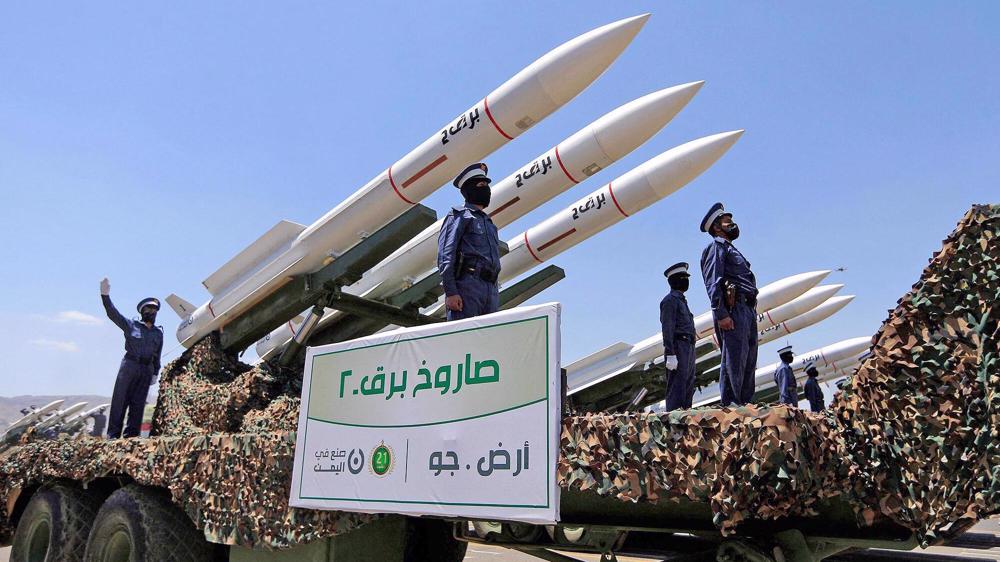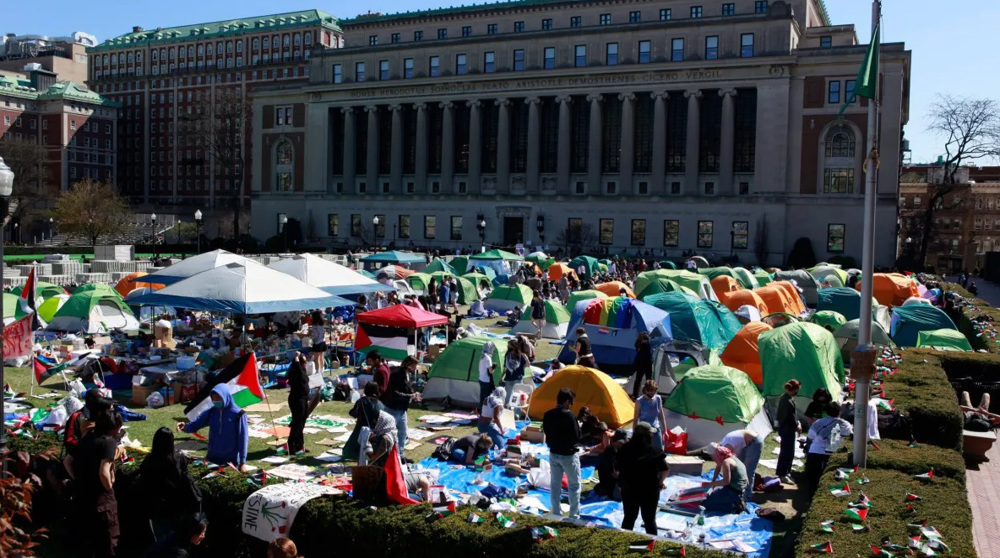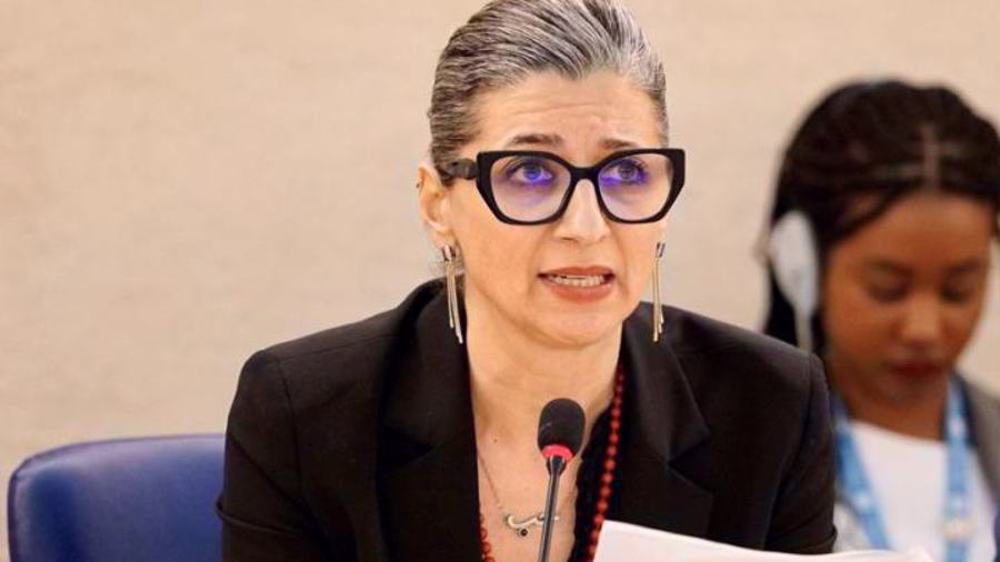Turkey-Israel deal is a deceit to regulate Gaza blockade
With the sun falling into the Mediterranean Sea, it felt like a “pleasant cruise” to Nader El Sakka on-board the MV Mavi Marmara. The “euphoric” sentiment did not last long, however, as Captain Mahmut Tural spotted a number of vessels on the radar of the ship.
"Negative. Our destination is Gaza," said the captain assertively when asked to change course by the Israeli regime’s naval forces tasked with keeping the Gaza blockade in place.
With stun grenades and teargas raining and Israeli soldiers landing on the deck hours later, the pleasant journey ended with the deaths of 10 activists -- including nine Turkish nationals and one Turkish American -- and detention of 600 others dreaming of a blow to the Israeli-imposed siege. Following harsh international criticism, Israel deported all of the detained passengers, including El Sakka and Captain Tural.
Mavi Marmara was part of a six-ship flotilla -- carrying 10,000 tons of humanitarian aid and construction materials – that was organized by the Turkish Foundation for Human Rights and Freedoms and Humanitarian Relief and the Free Gaza Movement. It was the movement's ninth attempt to break the naval blockade.
The attack deteriorated the already sour relations between the two former allies and triggered a rancorous diplomatic rift that lasted over six years.
Following the incident, Turkey demanded an official apology from Israel, justice for the families of those killed, and the lifting of the Gaza blockade. Israel – for quite obvious reasons – did not do any of them.
But the two erstwhile friends announced last week that they have reached an agreement to repair and normalize ties. The reconciliation agreement seems like a duplicitous betrayal to the people of Gaza as they are the only ones whose ordeal in the beleaguered sliver was not regarded in the accord.
Turkey argues that the agreement will facilitate the delivery of humanitarian aid to Gazans but the truth is that the deal can only be a way for Tel Aviv to regulate and reinforce its grip on the occupied land.
Winners and losers
Both Turkey and Israel agreed to remove their sanctions on one another, hoping to take back their relations to those days when the countries’ militaries were holding joint drills and the volume of bilateral trade totaled some $2 billion yearly. The agreement can also pave the way for a pipeline deal that will make Turkey a portal for Israeli gas exports to Europe.
One of the other terms of the agreement also commits Turkey to making sure that the families of the victims of Israel’s attack on the flotilla cannot take legal action against the perpetrators or any Israeli official. In return, Israel should put $20 million into a fund to be transferred to victims’ families but it won’t happen until Turkey passes a law to bar its court system from hearing any claims against Israelis for the attack.
It is ironic that even the Israelis know that this paltry amount is nothing to seriously consider in such a deal. Israel’s special envoy for negotiations with Turkey, Joseph Ciechanover, is reported as saying that the agreement would “generate achievements for Israel worth far more than $20 million.”
Under the deal, Turkey is allowed to carry out development projects, including a hospital, a power station, and a desalinization plant, in Gaza, and would be able to deliver personnel and materials for the projects under the supervision of the Israeli army from the Port of Ashdod.

Ankara says the agreement will also ease the delivery of an immediate shipment of 20,000 tons of humanitarian aid to Gaza. To make the propaganda look genuine, a Turkish ship docked at Ashdod port on Sunday afternoon, about a week after the deal was announced. The Panama-flagged Lady Leyla container vessel is carrying 11,000 tons of supplies, including food packages, flour, rice, sugar and toys, but it won’t reach Gaza before a thorough inspection by Israel. This is exactly what Israel wanted since they first asked the flotilla to change course.
Nothing has truly changed for the Gazans and it seems that everybody in Israel and Turkey knows it. Jonathan Schanzer, the vice president for research at the Foundation for Defense of Democracies in Washington, told The Jerusalem Post that the accord is “a win for the status quo as nothing really changes.”
What's in it for Gaza?
What is the use of such an agreement if the children of Gaza don’t feel it? Who is gaining from this, except, of course, Ankara and Tel Aviv? Why did the two friends-turned-foes-turned-friends clinched a deal under whose terms the lifting of the blockade of Gaza is not even mentioned? Why can Israel continue ignoring calls against the siege?
Last week, UN Secretary-General Ban Ki-moon called it "collective punishment for which there must be accountability". Who can guarantee the accountability of a criminal entity?
Tania Hary, the executive director of the Legal Center for Freedom of Movement (Gisha), wrote that the deal has failed to challenge Tel Aviv’s “shameful control" over Gaza as the Zionist regime “still defines the kinds of dreams a girl in Gaza can dream, the kind of economy businesspeople may trade in, whether energy flows into power lines, and if the water is clean.”
Gaza has been under a perpetual blockade since 1967 but the siege has worsened since nearly 10 years ago. The tiny coastal strip was also hit by three Israeli wars in 2008-09, 2012 and 2014.
The deal was a hope-shattering blow to any Gazan who had assumed Turkey would truthfully care about their plight and a came with a caveat: an agreement between Israel and Turkey won't do good to anybody but Israel and Turkey.
Yemeni forces strike Israeli ship, Port of Eilat in solidarity with Gaza
Columbia, Yale students bent on ending US support for Israeli genocide
VIDEO | Genocide in Gaza
Iran calls on BRICS to play role in stopping Israeli crimes
President Raeisi’s historic visit opens new chapter in Iran-Pakistan ties
Russia: Poland’s talks on hosting US nuclear weapons ‘dangerous’
VIDEO | Israel’s genocide bounty
India’s home minister vows to end Muslim reservation if his party wins










 This makes it easy to access the Press TV website
This makes it easy to access the Press TV website